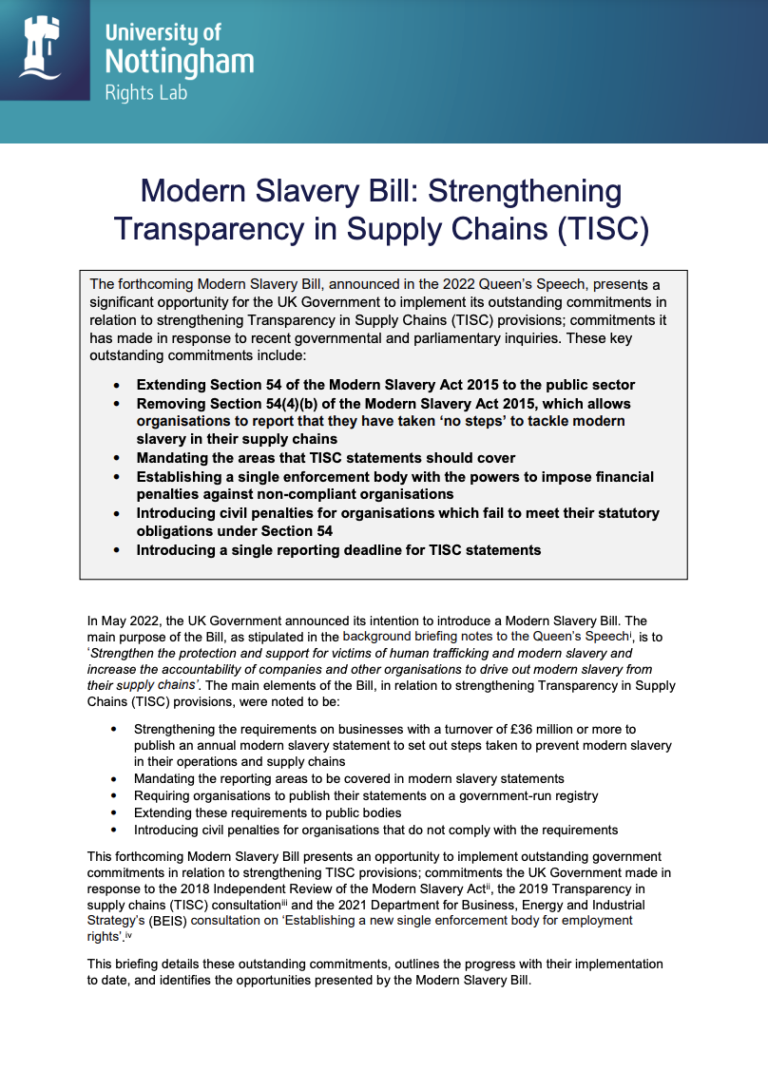The forthcoming Modern Slavery Bill, announced in the 2022 Queen’s Speech, presents a significant opportunity for the UK Government to implement its outstanding commitments in relation to strengthening Transparency in Supply Chains (TISC) provisions; commitments it has made in response to recent governmental and parliamentary inquiries. These key outstanding commitments include:
- Extending Section 54 of the Modern Slavery Act 2015 to the public sector
- Removing Section 54(4)(b) of the Modern Slavery Act 2015, which allows organisations to report that they have taken ‘no steps’ to tackle modern slavery in their supply chains
- Mandating the areas that TISC statements should cover
- Establishing a single enforcement body with the powers to impose financial penalties against non-compliant organisations
- Introducing civil penalties for organisations which fail to meet their statutory obligations under Section 54
- Introducing a single reporting deadline for TISC statements

